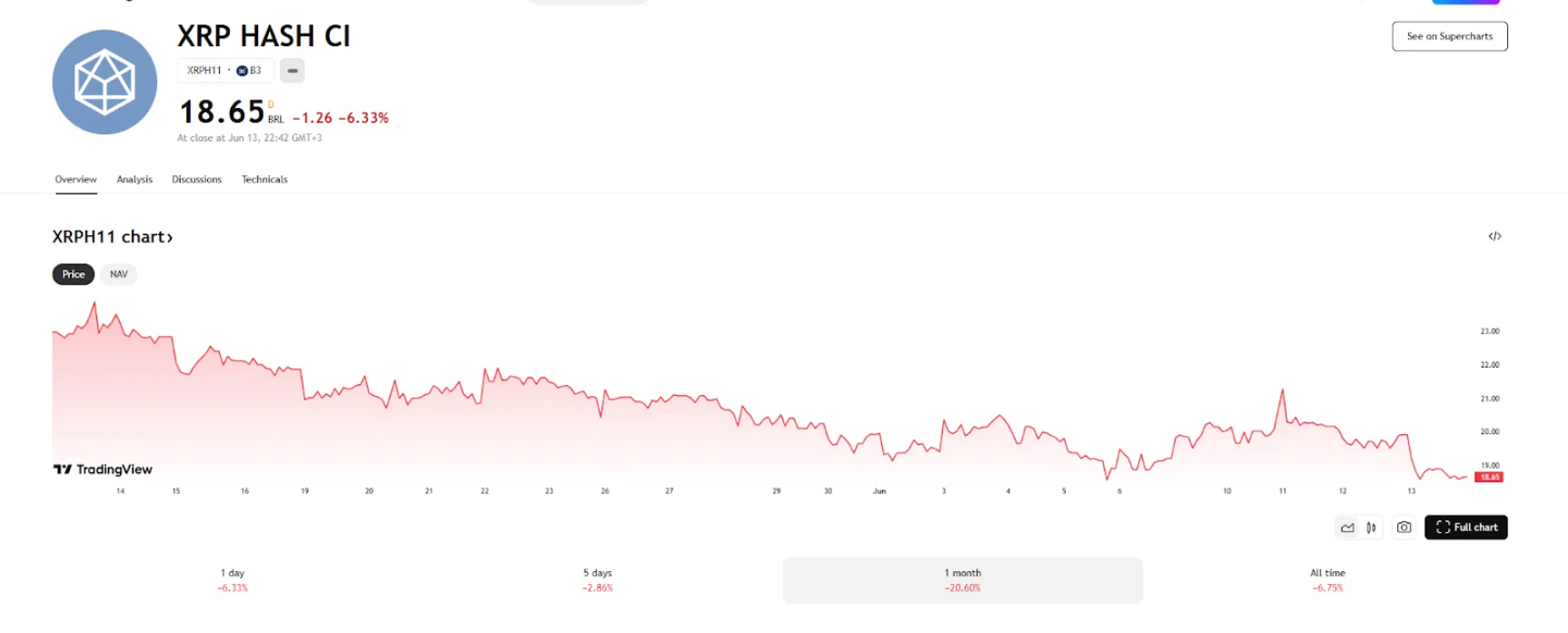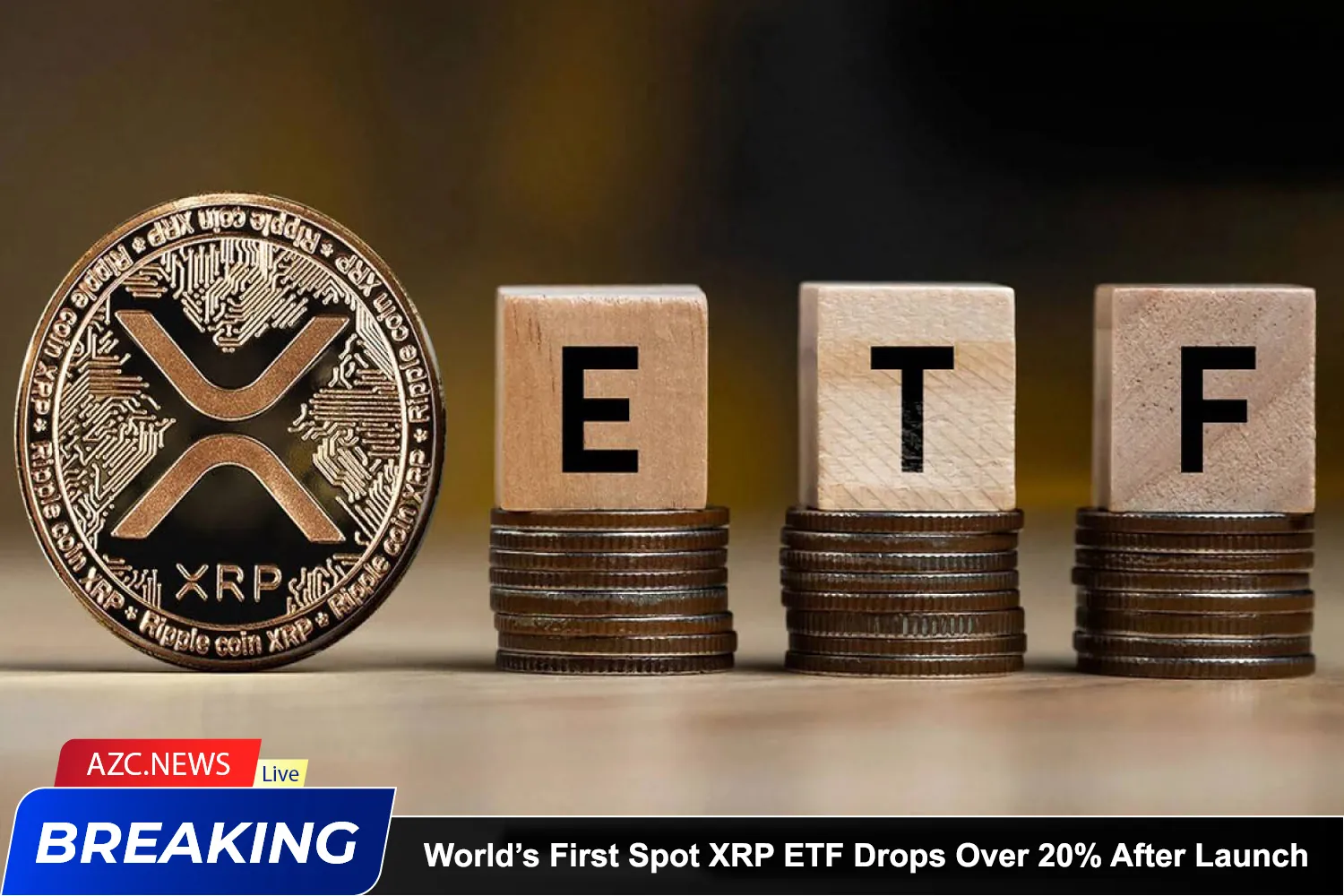The world’s first spot XRP exchange-traded fund (ETF), trading under the ticker XRPH11 on Brazil’s B3 stock exchange, has suffered a sharp decline after its debut. Issued by Brazilian asset manager Hashdex, the fund has dropped over 20% from its recent peak, reflecting the overall weakness in XRP’s market performance.
As of June 13, XRPH11 closed at 18.65 Brazilian reais (approximately $3.37), down 6.33% on the day and 6.75% below its highest price since launch. Over the past 30 days, the fund has fallen a total of 20.6%, despite initial enthusiasm when it debuted in late April.
While spot ETFs are typically expected to boost the underlying asset, XRPH11 has yet to establish a stable growth trend. Since its launch, the ETF has mirrored XRP’s volatile price movements. Despite brief rebounds, XRP has struggled to stay above the $2 level, which has dragged down the fund’s performance and reduced its appeal to both institutional and retail investors in the short term.
Limited Market Size May Restrict Impact

According to analysts, one key factor behind XRPH11’s weak performance is Brazil’s relatively small capital market compared to major financial hubs like the United States. Although the launch marked a milestone for XRP-focused financial products, the fund’s liquidity and reach remain constrained by limited local investor participation.
In addition, XRP’s failure to establish consistent upward momentum has further weakened investor interest, highlighting the role of broader market conditions and regulatory limitations in the fund’s early struggles.
Focus Shifts to SEC’s Decision in the U.S.
As XRPH11 falters, attention is shifting to the United States, where multiple spot XRP ETF applications await approval from the Securities and Exchange Commission (SEC). Among the most anticipated is Franklin Templeton’s Franklin XRP Fund, with a decision expected on June 17, as well as the WisdomTree XRP Trust proposed by Cboe BZX Exchange.
The SEC is currently reviewing these filings and has opened a public comment period to assess whether the funds meet its investor protection and market transparency standards. The outcome may also be influenced by developments in the ongoing legal battle between the SEC and Ripple. Recently, both parties requested an indicative ruling from Judge Analisa Torres to ease restrictions on XRP sales to institutional investors and reduce the $125 million civil penalty. Any resolution here could significantly impact the approval prospects for U.S.-based XRP ETFs.






